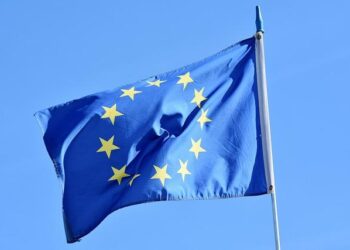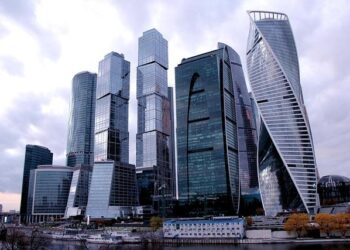Montenegro has reaffirmed its dedication to implementing crucial reforms as it advances on the path toward European Union membership, the European External Action Service (EEAS) reported. The Western Balkan country’s ongoing efforts to align with EU standards reflect a sustained commitment to democratic governance, rule of law, and economic development. This progress marks a significant step in Montenegro’s accession process, underscoring both domestic initiatives and continued cooperation with EU institutions.
Montenegro Advances Judicial and Anti-Corruption Reforms to Align with EU Standards
Montenegro has taken significant steps to enhance the independence and efficiency of its judiciary, addressing long-standing challenges that have hindered its alignment with European Union standards. Key legislative amendments have been introduced aimed at increasing transparency in judicial appointments and strengthening the accountability mechanisms for judges and prosecutors. These measures are pivotal in rebuilding public trust and ensuring the rule of law acts as a cornerstone for democratic governance. The authorities have also prioritized training programs for judicial personnel to embed EU best practices and foster a culture of integrity within the system.
Parallel to judicial reforms, Montenegro has intensified its fight against corruption through multifaceted strategies focused on prevention, detection, and prosecution. Recent anti-corruption laws bolster the capabilities of oversight bodies and increase protection for whistleblowers, a critical factor in exposing illicit activities. The country’s reform agenda features several core elements designed to meet EU expectations:
- Establishment of an independent anti-corruption agency with expanded investigative powers
- Enforcement of stricter asset declaration rules for public officials
- Enhanced inter-agency cooperation and data sharing mechanisms
- Promotion of civic engagement and transparency initiatives
| Reform Area | Key Advancements | Status |
|---|---|---|
| Judicial Independence | Transparent appointment procedures | Ongoing |
| Accountability | Strengthened disciplinary frameworks | Implemented |
| Anti-Corruption | Independent agency empowerment | Advanced |
| Whistleblower Protection | New legal safeguards established | Recently enacted |
Strengthening Democratic Institutions and Rule of Law Key to Montenegro’s EU Integration Progress
Montenegro continues to make significant strides in enhancing the framework of its democratic institutions and strengthening the rule of law, pivotal elements assessed by the European Union in accession talks. Recent reforms reflect a focused effort to bolster judicial independence, increase transparency, and curb corruption, all of which have contributed to positive feedback from the European External Action Service (EEAS). These advancements not only reinforce citizens’ trust in the political system but also align Montenegro more closely with EU standards and values.
The country’s reform agenda includes key priorities such as:
- Enhancing judicial capacity and accountability
- Implementing anti-corruption measures and policies
- Strengthening legislative oversight and democratic checks and balances
- Upholding freedom of the press and civil society engagement
| Area | Recent Progress | Next Steps |
|---|---|---|
| Judiciary | Appointment of new, independent judges | Complete reform of court case management |
| Anti-Corruption | Established specialized investigation units | Implement asset declaration enforcement |
| Media Freedom | Improved legal protections for journalists | Support independent media outlets |
Experts Urge Montenegro to Accelerate Economic and Environmental Reforms for Sustainable EU Membership
Montenegro’s progress towards achieving EU membership has been lauded by the European External Action Service (EEAS), highlighting the country’s strong dedication to critical reforms. However, experts emphasize the need to intensify both economic modernization and environmental sustainability efforts to meet the rigorous standards expected by the Union. Key sectors such as energy, waste management, and public administration require swift transformation to ensure long-term growth that is both resilient and eco-friendly.
To streamline this transition, specialists recommend focusing on the following priorities:
- Accelerating clean energy adoption to reduce carbon emissions and dependency on fossil fuels.
- Enhancing regulatory frameworks that support sustainable investments and innovation.
- Strengthening institutional capacities to enforce environmental laws effectively.
- Promoting inclusive economic policies that encourage job creation and social equity.
The table below summarizes Montenegro’s current reform benchmarks compared to EU requirements:
| Reform Area | Current Status | EU Benchmark |
|---|---|---|
| Renewable Energy Usage | 23% | 32% |
| Waste Recycling Rate | 18% | 50% |
| Public Administration Efficiency | Moderate | High |
| Green Investments | Underdeveloped | Robust |
Final Thoughts
Montenegro’s continued dedication to implementing key reforms underscores its unwavering commitment to European integration. As highlighted by the European External Action Service, these efforts mark significant progress on the country’s path towards EU membership. While challenges remain, Montenegro’s proactive approach signals a promising trajectory, reinforcing its position as a steadfast partner in the Western Balkans’ enlargement process. Observers will be watching closely as the government moves forward with the necessary steps to meet EU standards and expectations.
















